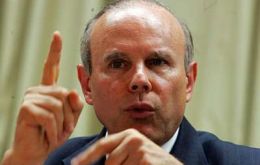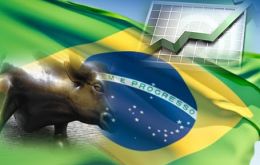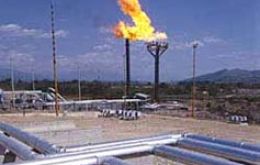MercoPress. South Atlantic News Agency
Economy
-
Wednesday, July 27th 2011 - 19:28 UTC
Brazil intervenes the derivatives markets in a bid to weaken the Real

Brazil imposed on Wednesday a tax on bets against the US dollar and warned it may boost intervention in the nation’s derivatives market in a bid to weaken a currency that reached a 12-year high this week. The Real declined by the most in almost three months at times loosing up to 2% to the US dollar.
-
Wednesday, July 27th 2011 - 04:49 UTC
Brazil’s development bank lends 30bn dollars at subsidized rate in five months

Lending by Brazil’s BNDES (National economic and social development bank) totalled 43.5 billion Real (29bn dollars approx) in the first five months of the year, representing a contraction of 6% compared to the same period in 2010, according to a bank’ release.
-
Wednesday, July 27th 2011 - 04:07 UTC
Lamy calls on WTO members for “an adult conversation” fearing failure of trade talks

The head of the World Trade Organization Pascal Lamy warned Tuesday its 153 members of the consequences on failing to agree a watered-down global trade deal by December and called for “an adult conversation” over what to do next.
-
Wednesday, July 27th 2011 - 03:48 UTC
Argentine farmers furious with government’s wheat export policy

Argentina liberated 450.000 tons of wheat for export, a decision which is believed to be closely linked to Sunday’s election in the farming province of Santa Fe where the government of President Cristina Fernandez de Kirchner suffered a major defeat.
-
Tuesday, July 26th 2011 - 20:58 UTC
Brazilians with a strong currency travelling overseas as never before

With the currency ever so strong against the US dollar Brazilians are travelling overseas and spending as never before, according to the latest figures from the Central Bank.
-
Tuesday, July 26th 2011 - 08:25 UTC
S&P upgrades Uruguay’s rating to BB+, just one notch below investment grade

The credit rating agency Standard & Poor’s upgraded on Monday Uruguay’s rating by one notch to BB-plus, only one notch below investment grade, praising years of “prudent and consistent” economic policies in the country.
-
Tuesday, July 26th 2011 - 07:38 UTC
Real soars to its highest in 12 years in spite of billions to support the US dollar

Brazil's Real soared Monday to its highest level against the US dollar since 1999. The dollar was buying 1.53 Real at midday on financial markets, representing a 0.9% increase from Friday. The dollar closed somewhat higher at 1.54 Real but below the 1.55 of twelve years ago.
-
Monday, July 25th 2011 - 20:53 UTC
IMF calls for ‘swift rise in US debt ceiling’ and warns of risks to world economy

The International Monetary Fund urged the United States to swiftly raise the debt ceiling to ward off risks of a credit downgrade that could damage the global economy.
-
Monday, July 25th 2011 - 12:25 UTC
Argentina’s trade surplus shrinking under a strong influx of imports

Argentina's trade surplus fell 22% on the year in June. Trade surplus last month 1.02 billion dollars, down from a revised 1.31 billion in June 2010, according to the national statistics agency, Indec.
-
Monday, July 25th 2011 - 07:08 UTC
EU/Mercosur agreement: “too much fear from both sides”

A trade agreement between Mercosur and the European Union would significantly expand European investment given the increase in bilateral trade, but ‘there’s too much fear from both sides’, according to Adrian van den Hover head of international relations for Business Europe.
